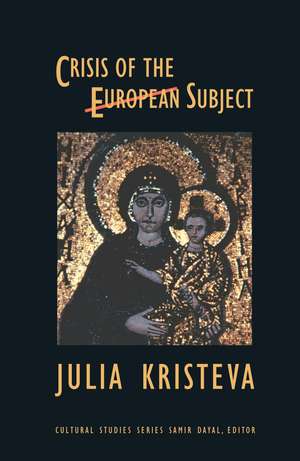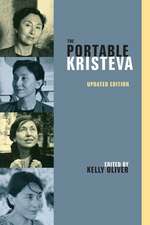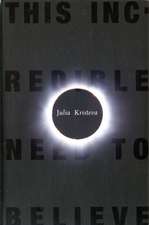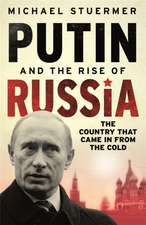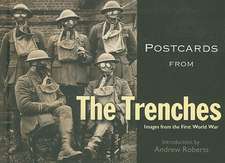Crisis of the European Subject: Cultural Studies
Autor Julia Kristeva Traducere de Susan Fairfielden Limba Engleză Paperback – 31 dec 1999
Preț: 113.37 lei
Nou
Puncte Express: 170
Preț estimativ în valută:
21.69€ • 22.71$ • 17.95£
21.69€ • 22.71$ • 17.95£
Carte disponibilă
Livrare economică 17-31 martie
Livrare express 28 februarie-06 martie pentru 19.50 lei
Preluare comenzi: 021 569.72.76
Specificații
ISBN-13: 9781892746474
ISBN-10: 1892746476
Pagini: 192
Dimensiuni: 118 x 211 x 17 mm
Greutate: 0.23 kg
Editura: Other Press (NY)
Seria Cultural Studies
ISBN-10: 1892746476
Pagini: 192
Dimensiuni: 118 x 211 x 17 mm
Greutate: 0.23 kg
Editura: Other Press (NY)
Seria Cultural Studies
Notă biografică
Julia Kristeva
Julia Kristeva is one of our most brilliant and original theorists, widely acclaimed for her work in linguistics, psychoanalysis, and literary and political theory. As a linguist, she has created a revolutionary theory of the sign in its relation to social and political emancipation. As a practicing psychoanalyst, she has explored the nature of the human subject and sexuality.
Susan Fairfield
Susan Fairfield is an editor, translator, and poet. She is also the author of papers on literary criticism, a psychoanalyst, and co-editor of Bringing the Plague: Toward a Postmodern Psychoanalysis. She lives in the Bay Area of California.
Julia Kristeva is one of our most brilliant and original theorists, widely acclaimed for her work in linguistics, psychoanalysis, and literary and political theory. As a linguist, she has created a revolutionary theory of the sign in its relation to social and political emancipation. As a practicing psychoanalyst, she has explored the nature of the human subject and sexuality.
Susan Fairfield
Susan Fairfield is an editor, translator, and poet. She is also the author of papers on literary criticism, a psychoanalyst, and co-editor of Bringing the Plague: Toward a Postmodern Psychoanalysis. She lives in the Bay Area of California.
Recenzii
"In these four packed meditations, bursting with intellectual vitality, Kristeva comes forth as an erudite as well as a personal, political, religious, and philosophical thinker, without relinquishing her (un)usual, exquisite poetic style. Engaging the issue of the contemporary failure of oedipal subjectivity and attacking our era of technology and robotization, she bravely calls for a return to the origins of our cultural memory. This is a provocative book for intellectuals of every stripe."
-Frances L. Restuccia, Boston College, author of Melancholics in Love
"The essays in this collection again prove that Julia Kristeva is one of the most profound and courageous thinkers of our time. From her intimate reading of Hannah Arendt to her diagnosis of Eastern Orthodoxy, Kristeva gives us a fresh perspective. In a noteworthy move in terms of her own work, in her essay on Arendt, Kristeva gives priority to active narrative over poetry. Her very personal reflections on the contemporary situation in the Balkans is stunning. Her diagnosis of the European Union and the role of religion in political economy fascinates with its provocations. And, her insightful comments on the meaning of legal equality for women complicates feminist debates over equality versus difference."
-Kelly Oliver, State University of New York at Stony Brook
-Frances L. Restuccia, Boston College, author of Melancholics in Love
"The essays in this collection again prove that Julia Kristeva is one of the most profound and courageous thinkers of our time. From her intimate reading of Hannah Arendt to her diagnosis of Eastern Orthodoxy, Kristeva gives us a fresh perspective. In a noteworthy move in terms of her own work, in her essay on Arendt, Kristeva gives priority to active narrative over poetry. Her very personal reflections on the contemporary situation in the Balkans is stunning. Her diagnosis of the European Union and the role of religion in political economy fascinates with its provocations. And, her insightful comments on the meaning of legal equality for women complicates feminist debates over equality versus difference."
-Kelly Oliver, State University of New York at Stony Brook
